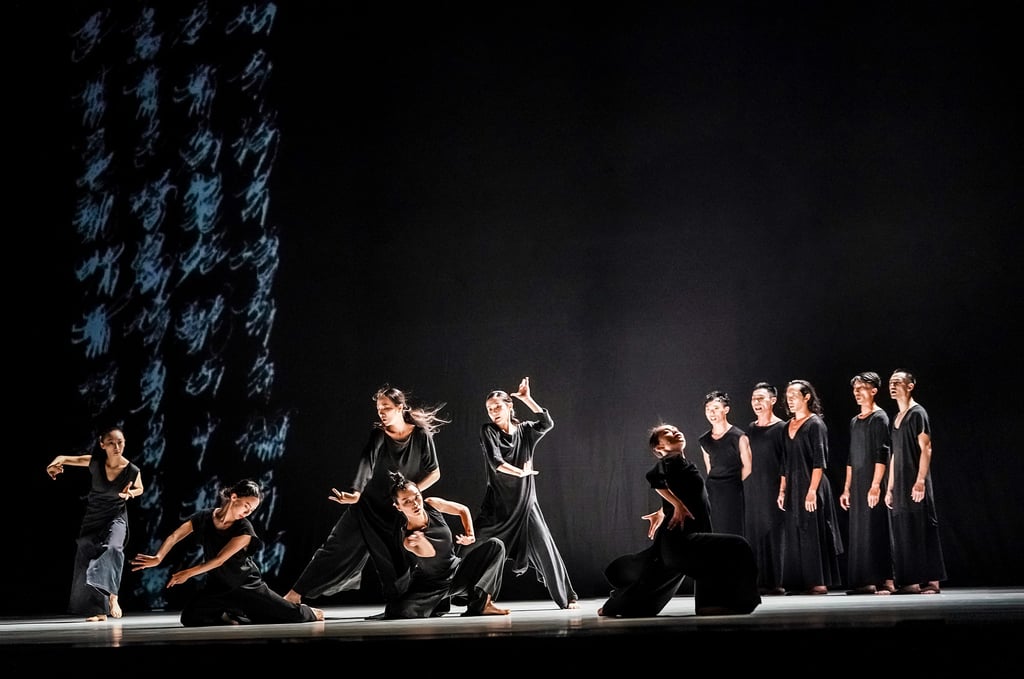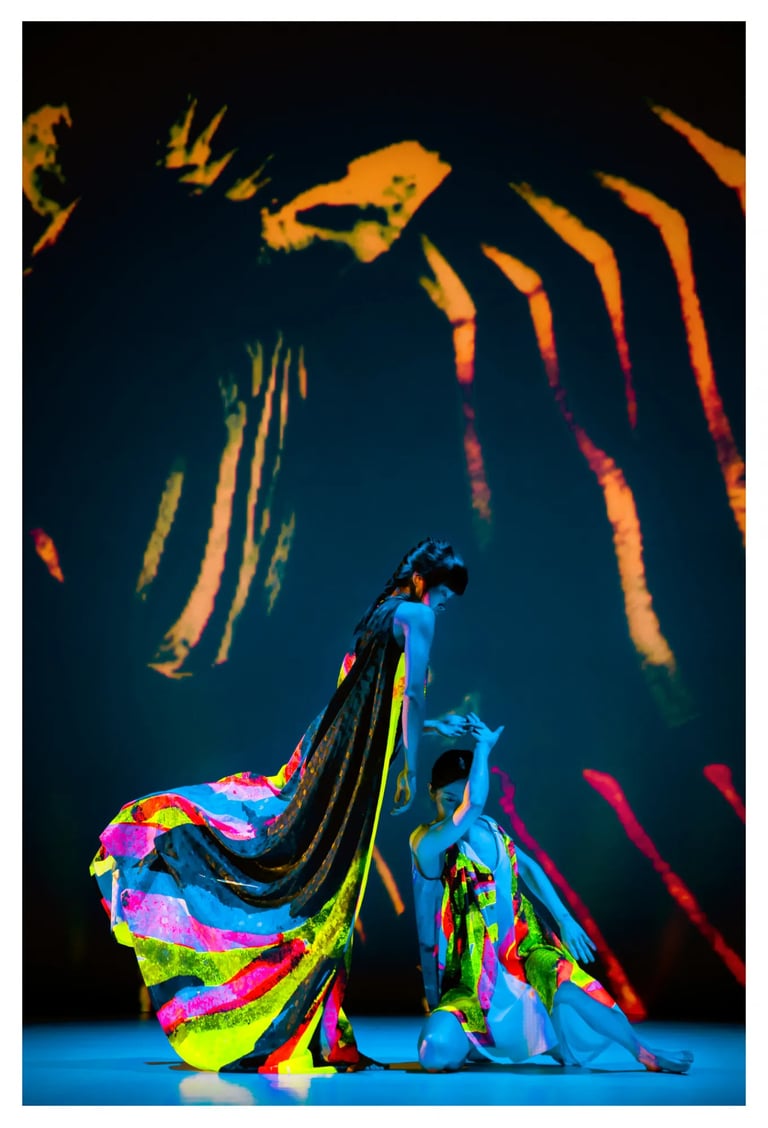Taiwan’s Cloud Gate Dance Theatre Invites Pittsburgh to Experience Cultural Memories
Mingsi Ma
11/15/20243 min read
By MINGSI MA
Cloud Gate Dance Theatre of Taiwan’s 13 Tongues will provide a new beginning to Pittsburgh Dance Council’s 2024-25 season, presented by the Pittsburgh Cultural Trust, on Saturday at the Byham Theater, after the originally scheduled opener, Dada Masilo of South Africa, canceled its North American tour due to travel complications.
Created by artistic director and choreographer Cheng Tsung-lung, 13 Tongues is inspired by the street life in Monga, Taipei’s oldest district in Taiwan. Monga has been a well-respected religious center and a bustling commercial hub for hundreds of years. Popular temples flourish with devoted followers, bringing business to the nearby shops and street markets.
Cheng was fascinated by his childhood memories of the diverse characters he encountered on the street of Monga. 13 Tongues therefore became his brainchild, using dance, sound, music and media on stage to evoke the nostalgia embedded in his cultural memories.
Whether it’s vendors hawking or people arguing on the street, Cheng and musician Lim Giong attempt to capture the essence of these moments, distilling them into abstract movements and sounds while preserving their underlying feelings and nostalgia.
The performance takes its name from Thirteen Tongues, a legendary street artist known to perform at Monga’s night market, using a wide range of sounds and gestures to portray different characters. 13 Tongues attempts to represent the complexity and multiplicity of life in Monga, following Thirteen Tongues’ example.


13 Tongues, performed by Cloud Gate Dance Theatre of Taiwan, is a multimedia work. (Image: Liu Chen-hsiang)
One example Cheng provided of an organic combination of different mediums is a scene in which male dancers chant a mantra on stage, set against a backdrop displaying calligraphy of the Heart Sutra, crafted by art designer Ho Chia-hsing. In the projection, every stroke has a curve. It looks like calligraphy while also looking like a pattern and the hand-lettered Daoist talisman drawing. Along with the dancers’ movements, the sound of the chant gets to be translated visually on stage.
As the interview was ending, Cheng talked about Jitong, a type of shaman in Taiwanese folk religion that can be seen in Monga, and how it inspired his creation of 13 Tongues. Jitong are believed to be ordinary people possessed by deities, to perform sacred duties. The ritual predominantly involves dance and chanting. Within a short time, the person’s gestures and facial expressions change dramatically.
Cheng was obsessed with the chant and the movement of Jitong when he was a kid.
“Not sure whether [the ritual] works or not,” Cheng said lightheartedly, “but at the time when things are less developed, Jitong was the community and neighborhood’s informal therapist, helping to resolve knotty problems in life. [When Jitong appears], the entire city would celebrate, creating another type of connection within the community and the people.”
13 Tongues was created as a vivid expression of Monga’s cultural beauty and collective memories. It invites the audience to be immersed in another part of the world, promising a connection that is blended through dance, music, sound and media.
TICKETS AND DETAILS
The Cloud Gate Dance Theatre of Taiwan is performing 13 Tongues at the Byham Theater, Downtown, on Saturday, November 16, 2024. Tickets: https://trustarts.org/production/96084/cloud-gate-dance-theatre-of-taiwan.
Cloud Gate Dance Theatre of Taiwan brings the cultural memory work 13 Tongues to the Byham Theater on November 16. (Image: LEE Chia-yeh)
13 Tongues premiered in the Taiwan International Festival of Arts at the National Theater, Taipei, in 2016, and has been developed over the years.
“A lot has changed since then,” Cheng said. “We kept what felt right. Every time a performance ends and the dance fades, we gain an opportunity to refine it.”
He provides an example of Cloud Gate Dance Theatre adjusting the timing of the breath in a recent adjustment while on this tour. In his pursuit of excellence, Cheng explained the development as “a process of subtraction,” making the performance compact but still cohesive.
Most of Cloud Gate’s dancers were born and raised in Taiwan. “We look for the shared memories of Monga,” said Cheng, discussing the process that combined dance, sound, music and media design into a cohesive and elaborate experience.
“Monga is always there,” he said. “The lifestyle and the shops are still there. We keep going back.”
He emphasized the collaboration as mutual, giving each collaborator, whether in design, music or projection design, space for revision and chances to provide their own imagination to the work, with Monga always as their guide.


Mingsi Ma is currently a Critical Insight fellow at Pittsburgh Public Theater, in partnership with American Theatre magazine. This interview was conducted in Mandarin, and the quotes have been translated by the author of this article.